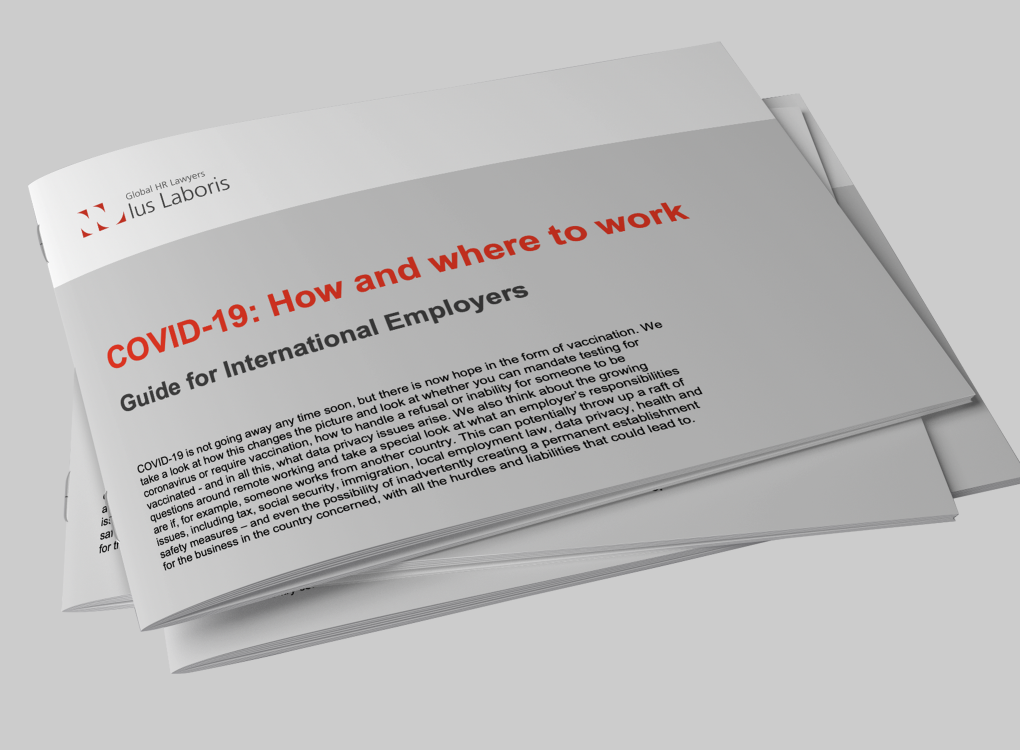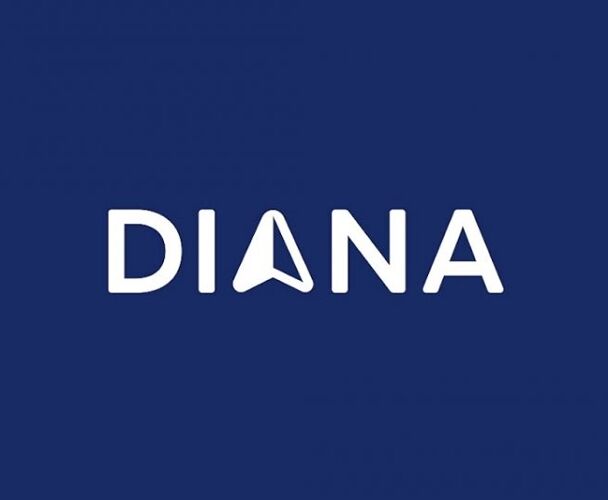Read the full Ius Laboris Guide for International Employers across the world: COVID-19: How and where to work
Estonia
1. Government support for employers
Various government measures are in place or planned to support businesses affected by the COVID-19 crisis. Labour costs are currently reimbursed by the Unemployment Insurance Fund to those employers in Harju County and Ida-Viru County whose activities have been significantly disrupted in the period from 28 December 2020 to 17 January 2021 due to extraordinary circumstances. A company, a branch of a foreign company, a non-profit association, a foundation or a self-employed person must meet certain criteria in order to receive support (inter alia, operate in a sector affected by restrictions, such as accommodation and catering establishments, sports facilities, hobbies, in-service training, or culture).
2. Testing and Vaccination
2.1 COVID-19 testing
You are entitled to require employees to undergo a medical examination as you are obliged to ensure a safe working environment for all employees. In general, the need for a COVID-19 test is decided by a doctor. In certain cases, you may request that the employee takes a COVID-19 test or provides you with a proof of a negative test result, however, the employee may refuse to comply. In this case, you may be entitled to refuse to let the employee to work. The circumstances of each individual case must be assessed.
2.2 Vaccination and vaccination status in the workplace
If the results of the risk assessment show that the working environment is affected by a biological hazard (e.g. COVID-19), you must take measures to mitigate the hazard, taking into account the infectiousness of the hazard. If vaccination is particularly important and other measures are not effective enough to protect the health of the employees or customers, vaccination may be justified. You are obliged to ensure the immunisation of employees in work areas where there is a risk of becoming infected with a communicable disease.
However, employees are not obliged to get vaccinated. In Estonia, vaccination is voluntary. If an employee refuses to get vaccinated and you have found vaccination necessary to ensure a safe working environment, you may be entitled to refuse to let the employee work, offer the employee other work or to terminate the employee’s employment contract (e.g. if it is not reasonably possible for you to reorganise the work or to take other measures to mitigate the risk effectively and the risk of transmitting the virus is high) as it is your obligation to ensure a safe working environment for all employees.
Considering the above, you may request information from employees on whether they have been vaccinated, presuming that all personal data protection related requirements are followed. Vaccination status is health data which must be processed in accordance with Article 9 of the GDPR, see below. If an employee refuses to provide information on his or her vaccination status, you may be entitled to refuse to let the employee to work, reorganise his or her work, offer other work or to terminate the employment, if you have found the vaccination necessary.
2.3 Incentives for vaccination
Vaccination against COVID-19 disease will be free for everyone in Estonia in 2021. You may offer employees an incentive for getting vaccinated if there will be costs related to vaccination.
2.4 Dealing with refusal or inability to get vaccinated
If an employee has religious or other objections to vaccination or cannot be vaccinated for medical reasons and you cannot mitigate the risks by other measures, reorganisation of work must be considered. You must also offer another work for the employee where the risk to the employee’s health and the health of other employees and customers is lower. If the above is not possible, you may be entitled to terminate the employee’s employment contract. The circumstances of the individual case must be assessed.
If an employee refuses to get vaccinated due to his or her religious beliefs and you cannot mitigate the risks by other measures, you should explain to the employee that the reorganisation of his or her work or termination of employment as appropriate is necessary in order to protect the employee’s health and the health of other employees and customers as s/he cannot be vaccinated (and not because of his or her religious beliefs, which could be considered discrimination).
2.5 Vaccination and data privacy
Data related to vaccination status of the employee are deemed to be personal data belonging to special categories. Therefore, whilst processing this information, the limitations and requirements stipulated in Article 9 of the GDPR must be considered.
2.6 Vaccination and posted workers
There are no specific provisions relating to testing or vaccination for posted employees. The Estonian Occupational Health and Safety Act must be applied to an employee who has been posted to Estonia even when it is less favourable to the posted employee than the provisions of a foreign law.
3. How to keep workers safe in the office
3.1 Setting up the workplace
In order to ensure a safe working environment and prevent employees from falling sick, you should take appropriate measures, including providing employees with necessary hygiene products, disinfectants and personal protective equipment, if necessary, reminding employees of elementary hygiene procedures, and minimising physical contact between employees and also between employees and customers (including avoiding meetings and supporting working from home where possible, etc). You should provide employees with instructions necessary in order to avoid the spread of the virus in the organisation. It is also important to ensure cleaning of frequently used rooms, objects and surfaces and to avoid meetings and business trips.
3.2 Vulnerable employees
There are no separate rules for vulnerable employees or groups. You must take necessary measures to maintain a safe work environment for vulnerable populations. If you are not able to provide employees from vulnerable populations with a safe working environment, you must maintain their average remuneration during the period the employee refuses to return to on-site work.
3.3 Back in the office
If you have ensured the working environment is safe, employees (including those from vulnerable populations) may not refuse to come to work.
3.4 Suspected cases
If an employee has fallen sick, you should immediately send the sick employee home. You should ask other employees to monitor their health and to remain at home if any symptoms occur. In addition, you should carry out effective cleaning and disinfection at the workplace.
In order for you to ensure safe working environment, you are entitled to require that an employee undergoes a medical examination or gets advice as to his or her health status. You may also require an employee who is suspected to be infected not to come to work. In this case you must maintain his or her average remuneration during the period you refuse to allow such employee to work.
There is no specific requirement for the employer to report coronavirus cases to the authorities: this is done by healthcare service providers.
You should inform other employees about the infection of the personnel. It is, however, only justifiable to disclose the necessary information to the minimum extent. The name of the infected employee should not be disclosed to other employees without justified reason, e.g. if it is necessary to prevent further infection. You should also inform the infected employee of the information that will be shared with other employees.
3.5 Return to work after recovery
Individuals diagnosed with the coronavirus are prohibited from leaving their residence or permanent place of stay until their recovery. This means, an employee may return to work after s/he has made a recovery. Whether a person has recovered is decided by a physician.
4. Where to work
4.1 How to organise homeworking for the long term
The Estonian Occupational Health and Safety Act applies also to remote work, which means that you are responsible for the work safety of any employee who works from home and you are obliged to organise a risk assessment of the home working environment. According to the recommendations of the Labour Inspectorate, employers must instruct the employees on how to furnish the workplace so that it is safe, on taking breaks, etc. As usual, you are also obliged to keep a record of the employee’s work and rest time and to investigate all occupational accidents.
You are required to cover work -related costs and consequently, employees working from home may ask, for example, for the costs of the Internet connection to be reimbursed to the extent that these costs occurred or have increased in connection with working from home. As the regulation is unclear regarding compensating costs of setting up a home office, we recommend regulating this issue by clear agreement with an employee.
Employees (including those from vulnerable populations) cannot demand working from home if the employer ensures safe work environment. According to the law, an employee may work outside his or her contractual place of performance of work, including at the employee’s home, based on an agreement between employer and the employee. If it has not been agreed that working from home is temporary and only for specified term, the place of performance of work can only later be changed with the employee’s consent.
4.2 Working from another country
If an employee wishes to work in a different country to that specified in his or her employment contract as a result of COVID -19, the employer must assess which country’s law applies in terms of immigration, local employment law, social security, tax, data privacy, health and safety measures etc. Additionally, the employer needs to consider if the employee’s activity could create a permanent establishment for the employer in that country, and hence an income tax risk.
Author: COBALT Estonia Senior Associate Heili Haabu.





